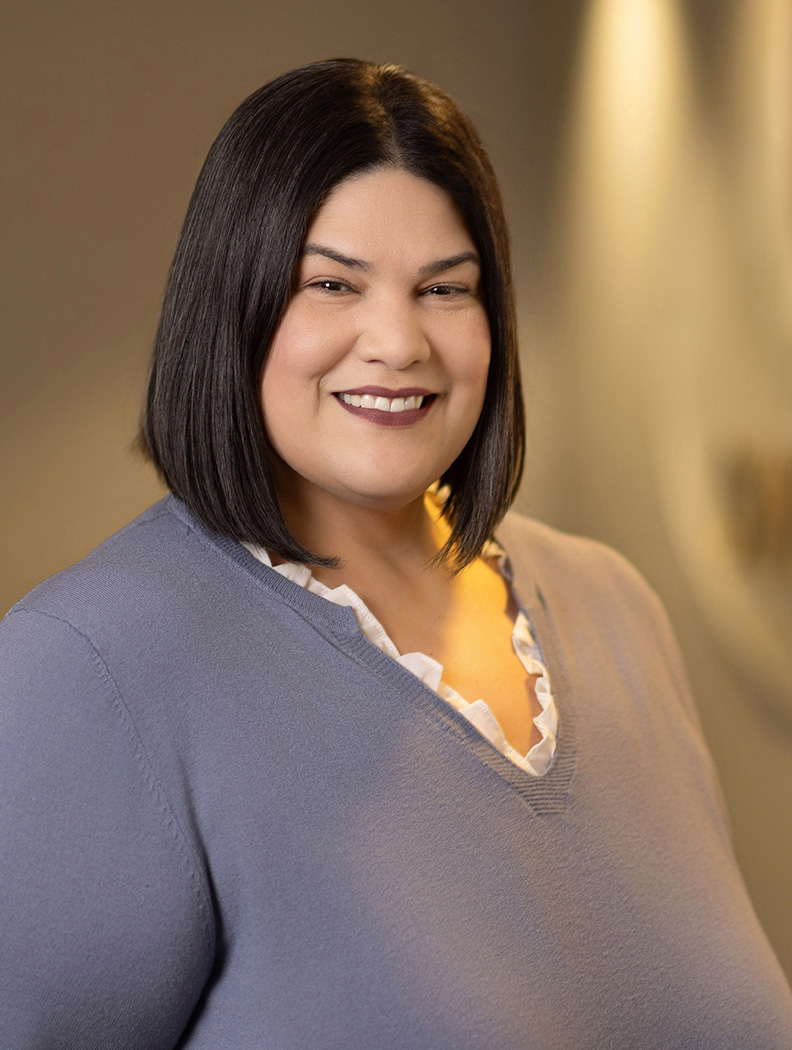For Any Cancer Diagnosis
- Q.
My son owes one hospital over $100,000 for surgeries, chemotherapy and radiation treatments. He has recently been approved for Medicare but it will be impossible for him to pay the remaining costs, after Medicare pays, for any future treatment. Is there any legal help for him?
A.The consequences of medical debt are staggering and unfortunately all too common. Medical debt is a major burden and a source of continuing stress for many cancer patients, especially those who are younger, have lower incomes, and lack insurance, according to a recent report by the Kaiser Family Foundation.
If he hasn’t already, your son should approach the medical centers where he has been treated to find out whether they will either lower his bill or work with him to address this sizeable debt. Some facilities provide funding to offset any care that isn’t covered by his insurance, though he will be expected to provide proof of his financial situation. Your son should also explore supplemental coverage plans such as Medicaid that could help with the amounts not covered by Medicare.
The Patient Advocate Foundation’s case managers provide guidance and support and can intervene on your son’s behalf regarding his medical debt. They also maintain a network of volunteer attorneys.
Lawhelp.org provides referrals for affordable and/or free legal assistance programs in one’s area and advice about bankruptcy protection and other financial issues.
- Q.
I can't afford to pay for my cancer medication. Is there help to pay for them?
A.The cost of your cancer medication may be a barrier to adherence or taking your pills on schedule. Because of these costs, some patients try to stretch out their supply of pills. Instead of taking them as the doctor prescribed, they take them every other day so that they do not run out of their pills so quickly. If you find yourself thinking of doing this or you are doing this, please speak with your doctor to get financial help. It is very important that you take your pills the way your doctor prescribed them. This way you will get the best results from your treatment.
There are organizations that help cancer patients with the costs of their pills. Co-payment organizations and patient assistance programs help individuals who cannot afford their medications. The following resources may be able to help you:
The website of the Cancer Financial Assistance Coalition (CFAC) has a searchable database of national and regional organizations that provide financial assistance and other services for people with cancer.
NeedyMeds helps patients without prescription coverage by providing information about patient assistance programs that provide prescription medications at no cost.
CancerCare Co-Payment Assistance Foundation (866-552-6729) provides co-payment assistance to patients who meet their guidelines as well as guidance and referrals for additional help.
Patient Access Network (866-316-7263) assists patients who cannot access the treatments they need because of out-of-pocket health care costs like deductibles, co-payments and coinsurance.
Patient Advocate Foundation (800-532-5274) offers a co-payment relief program and seeks to ensure patients’ access to care.
Partnership for Prescription Assistance (888-477-2669) matches patients to programs offering free or low-cost prescription medicines.
And finally, CancerCare’s professional oncology social workers can also refer patients for financial assistance and to organizations that offer free counseling services.
- Q.
How do I find financial help for a friend whose daughter has cancer (age 5)?
A.Families with children undergoing cancer treatment often face overwhelming financial costs. In addition to the medical costs, many parents find that their child’s intense treatment schedule can lead to loss of income and other unexpected expenses such as transportation and lodging.
There are a number of national organizations that can provide limited financial assistance for treatment-related expenses, including CancerCare and the National Children’s Cancer Society. You may want to recommend that your friend contact these organizations directly to find out if their family is eligible for assistance. You may also refer them to our fact sheet, Financial Assistance for Children and Teenagers.
It can be challenging to find help with daily expenses, such as rent, utilities and food. There may be local organizations that provide assistance for families facing serious childhood illnesses. The best way to learn about these local organizations is often the social worker at the child’s cancer treatment center. You may want to recommend that your friend find out more about local resources by dialing 211. This number will connect to the local United Way, which can link families to community programs.
Your friend is fortunate to have your support, as cancer treatment can place significant stress on a family. One of the easiest ways that you can help your friend and reduce the stress on this family is to provide practical support. You may want to ask this person directly if there are other ways you can help their family, such as offering to provide child care if there are siblings or running an errand. This type of practical assistance from a friend can provide a measure of relief to caregivers.
A cancer diagnosis has a profound effect on families, and a childhood diagnosis comes with its own unique challenges. It can be difficult to talk to young children about cancer, and to know how to help them communicate their feelings and fears. Your friend may want to check out CancerCare’s fact sheet Supporting a Child With Cancer.
CancerCare’s professional oncology social workers can also help in locating additional financial assistance and provide support and resources around caregiving for a child with cancer (800-813-4673).
- Q.
I've been having trouble paying my co-pays. I am self employed and with the downturn in the economy my business is way down. Where can I go to find some help?
A.Direct financial assistance for co-pays is limited, but it does exist. The following non-profit organizations provide help for expenses such as drug co-payments, deductibles, and other medical costs. Each program has its own eligibility requirements, so please contact them to learn more.
- CancerCare Co-Payment Assistance Foundation
- Patient Access Network Foundation
- Healthwell Foundation
- Patient Advocate Foundation’s Co-Pay Relief Program
- Patient Services Incorporated
- National Organization for Rare Disorders
- Leukemia and Lymphoma Society
In addition, the Partnership for Prescription Assistance has a comprehensive database of pharmaceutical companies that offer their medications at little or no cost to those who qualify.
Finally, find more information and resources through Cancer.Net’s patient guide, Managing the Cost of Cancer, and CancerCare’s Sources of Financial Assistance.
- Q.
I have insurance, but I still have bills that are stressing me out. I thought I'd be covered, but I don't know how I'm going to pay the part I'm being told I owe.
A.If you are insured and struggling with outstanding medical bills, consider the following options:
- Read your insurance policy and understand the terms of your contract. If you have questions, ask your insurance company, insurance broker, or the human resources staff at your employer to explain it to you. Your insurer may have denied a claim even though you are entitled to coverage. HealthCare.gov has an excellent guide on how to dispute claims with your insurer.
- Double check all bills and EOBs (explanation of benefits). You’d be surprised how often billing mistakes are made. Look for incorrect dates of service (you shouldn’t be billed for the room on the day you were discharged) and duplicate fees for tests and procedures.
- Ask the hospital or doctor to consider the insurance payment as “payment in full.” Many people don’t think to do this, and it is often more successful than expected. Some hospitals have funds to offset medical services that aren’t fully covered by insurance.
- Negotiate the outstanding balance by asking for a discount. According to a Wall Street Journal survey, 70% of adults who talked with a hospital say they were successful in negotiating a lower price for their medical bills; 61% were successful with their doctor. You will likely get a greater discount (sometimes as high as 50%) if you pay the outstanding balance in a lump sum. You can also set up a payment plan.
- Explore the resources for co-payment and other medical cost assistance.
Remember to reach out for help—medical debt understandably causes emotional stress and it’s important to get as much support as you can. Speaking with a counselor can help you manage some of your stress and come up with a plan so that you feel more in control.
- Q.
I think I may have cancer but I don't have any insurance and I'm not sure I can afford it. What can I do?
A.I understand your concern about the cost, but if you think you have cancer, you can’t afford not to visit the doctor. Cancer responds to treatment better when it’s caught early, and if it turns out that you don’t have it, you will have peace of mind.
There are 5 main ways to get health insurance:
Your, or your spouse’s, employer or union. If you or your spouse has a job that offers health insurance, ask if you’re eligible to receive it or buy into it. If you had insurance but lost your job within the last 60 days, ask if you’re eligible for COBRA. COBRA is a law that lets you keep your insurance for 18 months, sometimes longer. You pay the full cost.
Your school. If you are currently a full-time or part-time student, check with your college or university to see if you can get coverage through them.
Purchase it on your own. You can buy insurance either directly through an insurance company, or through your state’s Marketplace/Exchange. If you buy it directly through an insurance company, you will not be eligible for discounts based on your income. If you buy it through your state’s Marketplace/Exchange, your income will be taken into account, and you may receive an immediate subsidy, which will lower the cost of your premiums, and possibly your deductibles and co-pays as well. To find your state’s Marketplace, go to www.healthcare.gov. Please note: whether you buy it directly from an insurance company or through the Marketplace, you can only buy insurance during Open Enrollment. Open Enrollment occurs once a year; in most states, you must enroll between November 1 and December 15. There are a few exceptions to this rule – if you lose your job-based coverage mid year, get married, have a baby, move to another county or state, or become eligible for Medicaid, you are eligible for a “special enrollment period”. For more information on special enrollment periods, visit www.healthcare.gov.
Medicaid. Medicaid is a state-administered health insurance program that provides free or low-cost coverage to millions of Americans. In the 33 states (including Washington DC) that have chosen to “expand” Medicaid, it covers all children and adults below 138% of the Federal Poverty Level, which for 1 person in 2020 is $17,237. In the remaining 18 states, it only covers low-income families with children, pregnant women, the blind, and the disabled.
Medicare. If you are 65 or over, or have been deemed disabled by the Social Security Administration for 2 years, you may be eligible for Medicare. Contact www.medicare.gov for more information.
If you are unable to afford insurance and are ineligible for Medicaid or Medicare, ask about charity care and sliding scale programs (fees based on your income) at hospitals and clinics. Some hospitals are required to see patients who are uninsured. Contact your local department of public health, social services, or business office of your hospital of choice for more information.
Finally, if you are concerned about either breast or cervical cancer, the National Breast and Cervical Cancer Early Detection Program provides low-income, uninsured women access to screening and diagnostic services to detect breast and cervical cancers. Women who are subsequently diagnosed with cancer may be immediately eligible for limited Medicaid.
For Breast Cancer
- Q.
I've just been diagnosed with breast cancer. Even with insurance, I have many out-of-pocket expenses. What organizations can help me?
A.Even with insurance, most people are unprepared for the out-of-pocket expenses for medical care. These expenses can include co-payments and medications for side effects, as well as costs for transportation to and from treatment and childcare. Covering general daily living expenses can also be challenging, especially if there is a loss of income due to the diagnosis and treatment.
There are organizations that offer financial help to people with cancer to cover some of the costs related to their diagnosis. Several specifically assist breast cancer patients.
CancerCare, for example, offers limited assistance for transportation, homecare, and childcare for women who qualify. Limited funds are also available to assist with certain oral, pain, and anti-nausea medications, lymphedema supplies, and durable medical equipment.
Some local divisions of the American Cancer Society may also have volunteer programs to help with transportation to treatment, as well as assistance with wigs and prostheses.
Co-pay foundations are independent charities that assist insured patients who qualify with the co-pay costs of their pharmaceutical products. Clients may contact each foundation for information but can apply only to one foundation. Learn more about co-pay foundations.
Finding help with daily living expenses can be more of a challenge. Breast cancer organizations like Susan G. Komen for the Cure often fund Safety Net Programs. Call Komen’s helpline at 1-800-I’M AWARE for the number of your local affiliate to find out if there is a program near you.
Also try the 211 referral line of your local United Way for links to community programs that assist with daily living costs.
CancerCare offers helpful fact sheets on finding financial assistance in your community:
- Q.
I had a lumpectomy and lymph nodes removed for breast cancer in January 2013 and was out of work until July due to complications. I have insurance, but am left with a stack of bills that I owe for my care during this year. My insurance has a $600 deductible, and I have to pay 20% of what my insurance does not cover. I am unable to find any help other than for the medication related to the cancer and am extremely stressed over this. My husband is disabled and on a fixed income. Is there any help out there for co-pays and deductibles not related to medication? Thank you for any help you can give me.
A.Even with insurance, most people will have out-of-pocket costs for their medical care. This can include but is not limited to co-payments, medications, transportation and living expenses such as rent /mortgage, utilities, car payment, insurance and food.
Finding help for out-of-pocket expenses can be a challenge. The following websites offer possible resources:
- The American Cancer Society’s searchable database
- The Patient Advocate Foundation’s National Financial Resource Directory
- The Cancer Financial Assistance Coalition’s searchable database
You may also find additional helpful information in our fact sheets on finding financial assistance in your community:
CancerCare’s staff of oncology social workers can also provide you with emotional support and help you search for local resources: 800-813-HOPE (4673).
- Q.
I have metastatic breast cancer. I drive from Spartanberg, SC to Charleston, SC once a month and stay over for about two nights for treatment. Is there any help you give for transportation and/or lodging costs?
A.CancerCare offers limited assistance for transportation, home care and child care for women who qualify. Limited funds are also available to assist with certain oral, pain, and anti-nausea medications, lymphedema supplies and durable medical equipment. Please call us at 800-813-HOPE (4673) to apply.
American Cancer Society’s Road to Recovery program provides transportation to and from treatment for people who have cancer and either do not have available transportation or are unable to drive themselves. Volunteer drivers donate their time and the use of their cars so that patients can receive the treatments they need. Call 800-ACS-2345 to find out if Road to Recovery is available in your community.
Joe’s House is an online database listing thousands of places to stay across the country near hospitals and treatment centers that offer a discount for traveling patients and their loved ones.
Society of St. Vincent de Paul provides various services to people in need, including food programs, emergency financial assistance, emergency transportation, rent/mortgage assistance, free pharmacy services, budget counseling, referral services and more. To get help, contact the nearest Catholic Church in your community and ask if they have a Society of St. Vincent de Paul Conference in their parish or know of one close by. You can also look for “Society of St. Vincent de Paul” in your local White Pages or call 314-576-3993.
Your local United Way may know of resources that offer financial assistance. To find your local office, please visit their website or call 651-291-0211 or 211.
Finally, you can search for local resources through a website created by the Cancer Financial Assistance Coalition.
- Q.
My mom was recently diagnosed with breast cancer and she has to pay almost $500 in co-pays for her medicine. How can we get help?
A.Unfortunately, having insurance doesn’t guarantee that patients will be able to afford their treatment. Even with insurance coverage, out-of-pocket expenses such as co-pays for medications can add up very quickly. Your mother is not alone in struggling with these costs.
Sometimes, cancer drug manufacturers will offer patient assistance programs to financially assist people like your mother who are struggling. To find out if such a program exists for your mother, please contact the Partnership for Prescription Assistance at 888-477-2669.
In addition, there are organizations that offer co-pay relief for chemotherapy and cancer medications. Funding can vary and depends on the cancer type, so call before applying to confirm availability. One such program is the Patient Advocate Foundation Co-Pay Relief Program, which provides direct financial support for co-pays to insured patients who financially and medically qualify. For more information call 866-512-3861 or download an application. You may also try contacting the Good Days at 877-968-7233.
And finally, you can search for financial help through a website created by the Cancer Financial Assistance Coalition.
For Leukemia
- Q.
About six months ago, my five-year-old daughter was diagnosed with leukemia and I had to leave work to take care of her. Now, I'm struggling financially and need help paying the bills. Where can I get help?
A.Children with cancer typically undergo an intense treatment schedule and their care can become a full-time job in itself for the parent or guardian. Unexpected expenses can range from uncovered treatment costs to transportation and childcare, as well as those of daily living, which also especially difficult to meet when there is a loss of income.
CancerCare, The Leukemia and Lymphoma Society, and the National Children’s Cancer Society, offer limited financial assistance for some treatment and treatment-related expenses for eligible families. The American Childhood Cancers Organization also provides a listing of possible resources.
Ask the social worker at your child’s treatment center for information on organizations in your community that assist children with serious illnesses. In addition, many large treatment centers have special funds for children to help defray the cost of treatment and related costs. Make sure you inquire about whether your treatment center has such a fund, and how you might qualify.
Finding help with the expenses of daily living is more challenging. A possible resource includes the 211 referral line of your local United Way which provides links to community programs that may offer financial assistance or practical help. You can also try negotiating payment plans for your monthly bills with your utility company, phone provider and other creditors, who may also offer assistance programs to people in need.
For additional guidance, please read our fact sheet, Sources of Financial Assistance.
For Lung Cancer
- Q.
My wife was diagnosed with stage IV non-small cell lung cancer (NSCLC) and we have health insurance. One of her chemotherapy drugs is very expensive and insurance only pays $1000 per chemo treatment. She is 63 and does not qualify for Medicare. We are looking at co-payment debt of over $100,000. Any suggestions?
A.We often find that the private health insurance we have is fine when you are healthy, but not sufficient enough when diagnosed with cancer. Unfortunately, you are correct that she must either be 65 years old or determined to be disabled by the Social Security Administration for 24 months before qualifying for Medicare. I suggest you begin the disability application process if you have not already. Certain cancer diagnoses qualify for expediting the application process (called Compassionate Allowances). You can find out more about the qualifications and can apply online or call to speak with a Social Security representative about your specific situation.
Co-pay foundations are independent charities that assist insured patients who qualify with the co-pay costs of their pharmaceutical products. Current charities that assist non small-cell lung cancer (NSCLC) patients are:
- CancerCare Co-Payment Assistance Foundation
- Good Days
- The Patient Advocate Co-Pay Relief Foundation
- Patient Access Network Foundation
CancerCare also offers limited assistance for transportation, homecare, and childcare for patients who qualify. Some local divisions of the American Cancer Society may also have help with transportation to treatment as well as assistance with wigs.
The Patient Advocate Foundation’s trained case managers provide guidance and support and can intervene on your behalf regarding medical debt. They also maintain a network of volunteer attorneys.
Lawhelp.org provides referrals for affordable and/or free legal assistance programs in one’s area and advice about bankruptcy protection and other financial issues.
And finally, you may read our fact sheets about finding financial assistance in your community for further suggestions:
- Q.
My husband has recently been diagnosed with stage 4 small cell lung cancer and can no longer work. How do we pay our bills? I still work, but I don't make enough money. Any advice would be appreciated.
A.The onset of cancer is a very difficult time for many families financially, with loss of income and the costs of treatment adding to the stress they must cope with. To locate possible resources, I’d suggest the following:
Visit the website of the Cancer Financial Assistance Coalition (CFAC), which offers a database that allows you to search for assistance by either diagnosis or resource type. In addition, there is information on finding assistance.
Order a copy of “A Helping Hand: The Resource Guide for People With Cancer, Financial Edition,” which is available free of charge through CancerCare’s publication order form.
Apply for disability benefits through the Social Security Administration.
Read our fact sheets “Sources of Financial Assistance” and “Finding Resources in Your Community.”
The American Cancer Society also offers a searchable database for local resources that can help you find assistance.
For Melanoma
- Q.
My 28-year-old daughter has melanoma and recently quit her job due to emotional stress associated with it and is living with us now. She is still in active treatment and has prescriptions and doctor bills, but has lost her insurance. Could you tell me what would be the best option for her?
A.I can see that there has been a tremendous ripple effect with your daughter’s diagnosis, both for her, of course, but really for everyone involved. Dealing with cancer is always difficult but can be especially sensitive when one is a young adult.
CancerCare provides telephone counseling for anyone affected by cancer, and we also a specific online melanoma patient support group. Either of these modalities would allow her to express some of her fears and concerns in a safe and caring place. Please remember that caregiving brings its own unique challenges. Our services also include counseling for you as well. When someone in the family is diagnosed with cancer, the whole family is affected. Please call our HopeLine (800-813-4673) or view our caregiving resources.
As far as the financial stressors, I suggest investigating www.healthcare.gov. They can explain whether she can apply for insurance through the Affordable Care Act. You can also explore possible assistance with medications through the Partnership for Prescription Assistance.
- Q.
My husband was recently diagnosed with skin cancer. While we have insurance to cover many of the related costs, this will certainly deplete our finances further. What assistance is there for our situation?
A.While you have many advantages being insured, there may be additional unforeseen problems associated with being underinsured. There may be some ways of getting around this. Some of the drug companies have prescription assistance funds. I would encourage you to look into these by simply putting the name of the drug into an internet search engine.
Although there are many organizations that highlight prevention and awareness for melanoma, there are very few that offer financial assistance. Please call our HopeLine at 800-813-4673 for more information.
There may be local resources as well. The American Cancer Society has resource listings by zip codes. You can access these by calling 800-227-2345 or by visiting their website.

 Answered by
Answered by  Answered by
Answered by  Answered by
Answered by  Answered by
Answered by  Answered by
Answered by  Answered by
Answered by  Answered by
Answered by  Answered by
Answered by  Answered by
Answered by